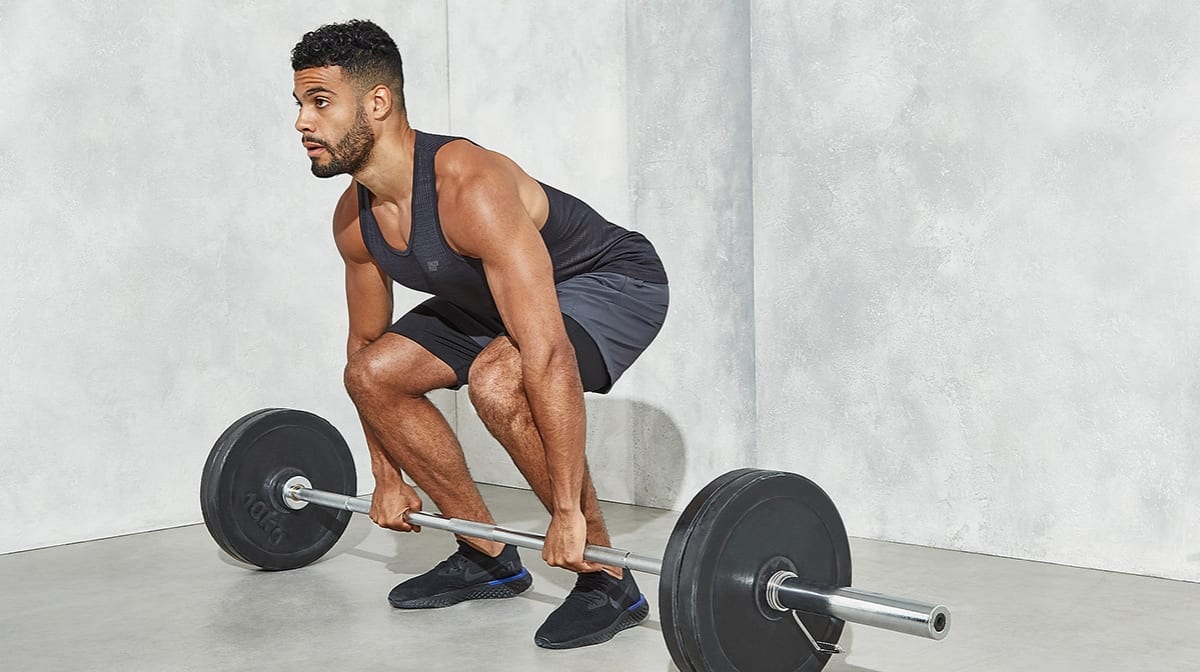Have you always wondered if leg day really burns more calories at the gym? Well, you’re not alone! Many fitness enthusiasts have debated this topic, and today we’re here to shed some light on the matter. So, does leg day truly torch more calories than other workouts? Let’s find out!
When it comes to calorie burning, leg day definitely packs a punch. Engaging large muscle groups like your quadriceps, hamstrings, and glutes requires a significant amount of energy, therefore leading to a higher calorie burn. Think about it – when you’re squatting, lunging, or doing any leg-focused exercises, you’re essentially working some of the biggest muscles in your body.
And with bigger muscles comes a higher metabolic rate, even after your workout is over! In fact, studies have shown that leg exercises can increase your resting metabolic rate, meaning you’ll continue to burn calories long after you’ve left the gym. Intrigued? Well, in our upcoming article, we’ll dive deeper into leg day exercises and unpack the science behind the calorie-burning phenomenon.
So, if you’ve been neglecting leg day in your fitness routine, it might be time to reconsider. Not only can it help build strong and toned legs, but it also has the potential to boost your calorie burn throughout the day. By incorporating exercises like squats, deadlifts, and lunges into your workouts, you’ll not only be working towards sculpted legs but also getting closer to achieving your weight loss goals.
Stay tuned for our upcoming article, where we’ll explore more leg day workouts and tips on how to maximize your calorie burn. Leg Day has become a popular term in the fitness world, referring to a specific day dedicated to working out the muscles in your legs. Many people believe that Leg Day is more effective in burning calories compared to other workouts.
But is this really true? In this article, we will explore the concept of Leg Day, the exercises involved, the calories burned during Leg Day, the intensity and duration of Leg Day workouts, the beneficial effects of Leg Day, myths and misconceptions about Leg Day, balancing Leg Day with other workouts, choosing the right leg exercises, preparing for Leg Day, and the importance of recovery and rest after Leg Day.

What is Leg Day?
The concept of Leg Day
Leg Day is a designated day in your workout routine when you focus solely on exercising the muscles in your legs, including the quadriceps, hamstrings, glutes, calves, and hip muscles. It involves a series of leg-specific exercises to strengthen and tone these muscles.
Exercises involved in Leg Day
Some common exercises involved in Leg Day workouts include squats, lunges, deadlifts, leg presses, calf raises, and leg extensions. These exercises target different leg muscles and can be performed with different variations and equipment, such as dumbbells, barbells, resistance bands, or bodyweight.
Calories Burned during Leg Day
Factors affecting calories burned during Leg Day
The number of calories burned during Leg Day workouts depends on several factors, including your body weight, workout intensity, duration, and the specific exercises performed. Generally, the more intense and longer the workout, the more calories you will burn. Additionally, the more muscles you engage and the higher the resistance, the greater the calorie burn.
Comparison of calorie burn with other exercises
Leg Day workouts can indeed burn a significant amount of calories due to the involvement of large leg muscles. However, it is important to note that the total calories burned during Leg Day may not necessarily be higher than other full-body workouts or cardio exercises like running, swimming, or cycling. These activities engage multiple muscle groups and can result in a higher overall calorie burn.
Benefits of high calorie burn in Leg Day
Although Leg Day may not burn more calories than other exercises, it does offer unique benefits. The high calorie burn during Leg Day can contribute to weight loss and overall calorie deficit, which is crucial for achieving fitness goals. Additionally, Leg Day workouts require significant energy expenditure, which can help improve endurance and cardiovascular health.
Intensity and Duration of Leg Day
Optimal intensity for calorie burn
To maximize the calorie burn during Leg Day, it is important to perform the exercises with proper form and technique. Increasing the intensity by adding weights or resistance can help stimulate muscle growth and increase the calorie burn. However, it is essential to listen to your body and avoid pushing yourself beyond your limits, as this can lead to injuries.
Duration of Leg Day workouts
The duration of Leg Day workouts may vary depending on individual fitness levels and goals. Generally, a well-rounded Leg Day routine should last around 45 minutes to an hour. It is important to include a warm-up and cool-down period to prepare the muscles and prevent injuries.
Beneficial Effects of Leg Day
Strength and muscle development
Leg Day workouts are highly effective in building strength and muscle mass in the lower body. Exercise movements like squats and deadlifts target multiple leg muscles simultaneously, helping to develop lean and toned legs. Additionally, the increased muscle mass from Leg Day can boost metabolism, leading to more efficient calorie burning even at rest.
Improved metabolism
Engaging in intense Leg Day workouts can have a positive impact on your metabolism. The high-intensity exercises require a significant amount of energy, which can elevate your metabolic rate even after your workout. This means that you continue to burn calories at an increased rate even when you’re not exercising.
Enhanced athletic performance
Strong leg muscles are essential for optimal athletic performance. Leg Day workouts can improve your power, speed, and agility, allowing you to excel in sports or activities that require lower body strength and explosiveness. Whether you’re a runner, a cyclist, or a basketball player, incorporating Leg Day into your routine can enhance your overall athletic capabilities.

Myths and Misconceptions about Leg Day
Claims about disproportionate calorie burn on Leg Day
One common misconception about Leg Day is that it burns significantly more calories compared to other workouts. While Leg Day does involve large muscle groups, it is important to remember that the total calorie burn depends on various factors, as mentioned earlier. Therefore, the notion that Leg Day burns a disproportionate amount of calories is not entirely accurate.
Importance of overall exercise routine
It is essential to have a well-rounded workout routine that includes both cardiovascular exercises and strength training for overall fitness. While Leg Day is beneficial for targeting specific leg muscles, neglecting other muscle groups can lead to muscle imbalances and potential injuries. Balancing Leg Day with exercises that target the upper body, core, and cardiovascular system is crucial for maintaining overall strength and health.
Balancing Leg Day with Other Workouts
Incorporating Leg Day in a well-rounded fitness routine
To maintain a balanced fitness routine, it is important to incorporate Leg Day alongside other workouts. This can be achieved by scheduling Leg Day workouts on specific days while dedicating other days to upper body exercises, core workouts, and cardiovascular activities. This way, you can ensure that all muscle groups are adequately trained and that you are reaping the benefits of a comprehensive fitness routine.
Overtraining considerations
While Leg Day is important for lower body strength, it is crucial to avoid overtraining. Overtraining can lead to fatigue, decreased performance, and an increased risk of injuries. It is recommended to have at least one rest day in between Leg Day workouts to allow for proper muscle recovery and adaptation.

Choosing the Right Leg Exercises
Effective leg exercises for calorie burn
When selecting leg exercises for Leg Day, it is important to choose those that target multiple leg muscles simultaneously. Compound exercises such as squats, lunges, and deadlifts are highly effective in engaging multiple leg muscles, thereby increasing the calorie burn. Additionally, incorporating circuit training or high-intensity interval training (HIIT) into Leg Day can further enhance calorie burn and overall fitness.
Variety and progression in Leg Day workouts
To ensure continued progress and prevent plateauing, it is important to incorporate variety and progression in your Leg Day workouts. This includes trying different exercises, using different equipment, changing the number of sets and repetitions, and gradually increasing the intensity or resistance. By continually challenging your leg muscles, you can avoid stagnation and continue to see improvements in strength and calorie burn.
Preparing for Leg Day
Warm-up exercises for leg muscles
Before starting your Leg Day workout, it is crucial to properly warm up your leg muscles to prevent injuries. This can be done through dynamic stretching, light aerobic exercises, and mobility drills. Focusing on movements that target the lower body, such as leg swings, walking lunges, and bodyweight squats, can help increase blood flow to the muscles and improve flexibility.
Proper form and technique
Maintaining proper form and technique is essential during Leg Day workouts to maximize the benefits and minimize the risk of injuries. It is important to engage the correct muscles and avoid excessive strain on the knees, back, or other joints. If you are unfamiliar with proper form, it is recommended to seek guidance from a qualified fitness professional or trainer.

Recovery and Rest
Importance of rest days after Leg Day
Rest and recovery are crucial components of any fitness routine, including Leg Day. After intense Leg Day workouts, the leg muscles need time to repair and rebuild. It is recommended to have at least one or two rest days in between Leg Day workouts to allow for proper recovery. During this time, the muscles adapt and become stronger, leading to improved performance and reduced risk of overuse injuries.
Muscle recovery strategies
There are various strategies you can employ to enhance muscle recovery after Leg Day. These include adequate hydration, proper nutrition, and getting enough sleep. Consuming a balanced diet that includes lean protein, complex carbohydrates, and healthy fats can provide the necessary nutrients for muscle repair and growth. Additionally, incorporating stretching, foam rolling, or other recovery techniques can help relieve muscle soreness and improve flexibility.
Conclusion
Leg Day is undoubtedly an important component of a well-rounded fitness routine, targeting the muscles in your legs and offering numerous benefits such as strength development, improved metabolism, and enhanced athletic performance. While Leg Day workouts can burn a significant amount of calories, it is important to remember that the total calorie burn depends on various factors.
Incorporating Leg Day into your fitness routine alongside other workouts is crucial for overall strength, balance, and health. So, the next time you hit the gym for Leg Day, remember that it’s not just about burning calories but also about building strength and achieving fitness goals.




